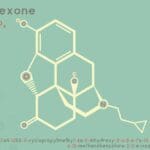Have you ever felt discouraged to the point of giving up when trying to eat healthier?
If so, you’re not alone in this and you should not feel ashamed. Despite the abundance of benefits, many people still greatly struggle to improve their nutrition.
Food is (obviously) a necessity—without it, we can’t live. That being said, it is still easy for it to become one of those things that we take for granted. Additionally, food is one of those parts of life that can be very difficult to change up or to break away from habits we have developed over the years.
Since addiction has been scientifically proven to be a physical illness, it follows that traditional medical approaches to healing would be applicable here as well. For example, maintaining a balanced diet can improve and restore your overall health and aid in your body’s fight against an illness.
There has been a good deal of evidence supporting the benefits that good nutrition can have on our bodies and even specifically when recovering from substance abuse. But sometimes knowing these facts is not enough to motivate us to change our diet.
This might be the case because we underestimate the power that food has—both on us and over us.
The Power Food Can Have on Us
Especially for someone in addiction recovery, a balanced nutrition is essential to maintaining sobriety. “Many people who suffer from a substance abuse addiction become malnourished. They are deficient in the essential vitamins, minerals, micronutrients, and macronutrients that their body needs to function in a healthy way,” The Aviary explains in Nutrition Importance to Recovery. If those essential proteins are not coming from a balanced nutrition, our bodies cannot function properly. In other words, “you are what you eat” really is true.
Additionally, there are even further health benefits to intaking the proper kinds and amounts of food. These benefits strengthen and rebuild all parts of our bodies: e.g. immune system, tissue, organs, nervous system, etc.
The Power Food Can Have Over Us
There are many factors that affect whether someone is able to change their nutrition, including their economic status and access to healthy food options. But even in scenarios when someone has the means and environment to switch to healthier eating habits, it can still be extremely difficult.
Below are just two of many complex perspectives on what contributes towards the power that food can have over us:
Psychologically
The foods that you eat can have just as strong of a hold on your life as the substance(s) that you are working on cutting out of your life. Our brains can become dependent upon certain dopamine surges, which can be attained through substances as well as high-fat and high-sugar foods. Cutting out these kinds of foods can even have the same painful withdrawal symptoms which come with substance detoxification.
This is why it is so important for the root causes of addiction to be addressed and processed while you are in recovery. If the underlying issues are not resolved, it is just too easy for our brains to simply turn to something else to feed the parts of ourselves that have grown to demand and expect that same “rush.”
Socially
Food has become an archetype as a building-block for community. Whether we think about it or not, the food you eat can have an impact on our identity—from representing your family’s traditions or ethnic background to the memories of certain foods being associated with certain people or times of your life. Even your taste preferences can subtly factor into the decisions you make.
Tips for Successfully Improving Your Nutritional Habits
With all of that in mind, you should not feel alone or at fault if you have a history of trying unsuccessfully to replace high-sugar and guilty-pleasure foods with the ones that you know are good for you. This does not mean that improving your nutrition is impossible. It just means that maintaining a healthy diet can be challenging.
Consider the following tips when addressing your nutrition in recovery:
- Avoid fad diets. While the dramatic results of popular diets might be enticing, fad diets have actually been proven to do more harm than good. Additionally, steer clear of anything that drastically changes or restricts what your body is used to without easing into it and without a structured, well-balanced alternative ready in place. The latter kinds of diets can too easily slide into the realm of eating disorders, which people with substance abuse addictions are already more prone to developing.
- Work with your recovery team. Your nutrition plan should be a significant component to your time in treatment and your long-term recovery plan. Make sure that your recovery center offers a holistic approach like The Aviary’s, which includes education and guidance on proper nutrition and its relation to addiction.
- Stick to the basics. While it might not be as flashy or quick-acting as the fad diets, using a tried-and-true nutritional guide is a much more reliable and healthier way to go. Certainly work with your recovery center’s nutritionist to develop a plan tailored to your body and needs, but do check out the NHS Eatwell Guide for what a balanced diet should really look like.
- Be gracious to yourself. If you cave for a sweet craving or completely blow off your nutrition plan while on vacation, it is not the end of the world—and it is not as serious or dangerous as giving into a tempting longing for drugs or alcohol. All that matters in this kind of situation is that you get back on that horse!
As someone who has or is already experiencing how extremely challenging it can be to quit something that your body has become dependent on, you know that while the detoxification process might feel unbearable at times, the end result truly is worth it.
And remember that life-changing habits (of all kinds) cannot be formed or broken overnight and that the process is anything but easy—at least not if you want to reach a destination that can last.
(314) 464-0222. We’re here to help.










